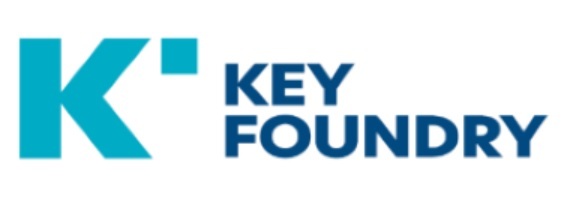
Key Foundry said on Tuesday that it will offer its third-generation 0.18 micrometer Bipolar-CMOS-DMOS (BCD) process to customers.
BCD process combines bipolar process that controls analog signals, CMOS to control digital signals and DMOS for high power processing, into one chip.
It is mainly used to produce various power semiconductor products.
Key Foundry’s Gen 3 BCD improves performance by 20% compared to its predecessor, the company said. It reduced switching leakage by using low resistance of 8 to 40Volt NMOS and PMOS as well as parasitic capacitance.
The process is aimed at chips that needs power efficiency. It received a level 1 certificate from AEC-Q100 reliability standard.
Key Foundry said its Gen 3 BCD process will be optimal to manufacture motor driver IC, battery management systems, DC-DC IC and other power semiconductors for automobiles.
The company was working with power semiconductor design companies in Asia and the Americas to use the process for product development, it said. Companies that design DC-DC IC and automobile power chips were showing interest, Key Foundry said.
The company will also offer IP that can use the Gen 3 BCD process. It will also provide its process for insulating films that can work at over 10kV so that the power chips can have electrostatic isolater function.
Key Foundry was also developing various devices such as low power device, low resistance PMOS for high side circuits and depletion type NMOS for startup circuit. These will be provided within the first half of the year.
Company CEO Lee Tae-jong said it is seeing demand for highly reliable and cost competitive foundry technology from the fast growth in the global power semiconductor market. Key Foundry will offer its BCD process to satisfy customers, he said.
Key Foundry was formed in September last year after splitting off from Magnachip. SK Hynix was among the investors into Magnachip in March last year when a local private equity fund bought Magnachip’s foundry business and factory at Cheongju. Current CEO Lee joined Magnachip in 2007.

